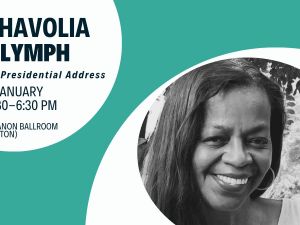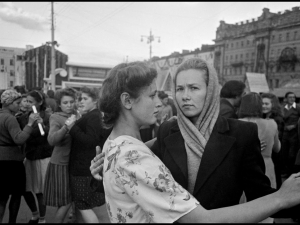Sarah Balakrishnan's Essay Recognized With Three Awards

Assistant Professor of History Sarah Balakrishnan's essay “Prison of the Womb: Gender, Incarceration, and Capitalism on the Gold Coast of West Africa, c. 1500-1957” was recognized by three awards:
The American Society for Legal History has awarded the essay its Jane Burbank Global Legal History award. The Jane Burbank award recognizes the best article in regional, global, imperial, comparative, or transnational legal history published in the previous calendar year. The citation for the award reads as follows:
"This stunningly original article challenges several dominant tendencies in the global history of prisons, particularly a persistent focus on male incarceration and an emphasis on penal practices of the colonial state. Through careful analysis of a wide range of sources, including testimony of female prisoners, Balakrishnan tells a radically new story. It centers on the incarceration of women in so-called native prisons in 19th century colonial Gold Coast (southern Ghana). The phrase “prison of the womb” describes a startling pattern: captive women were threatened with impregnation in efforts to urge debt repayment and tort settlement by kin groups. Palm oil merchants targeted women and utilized the punishment to enforce collection of payments on loans and amass capital. The committee was deeply impressed by the originality of the article, its deft combination and close interpretation of varied sources, and its broader significance for the regional and global history of carceral politics and practices."
Balakrishnan's article also won the Gender Article Prize from the Berkshires Conference of Women Historians. The citation reads:
This stunning piece focuses on the carceral state in West Africa, from the early modern period into the 20th century. The committee was struck particularly by the breadth and temporal scope of Balakrishnan’s research. Her study highlights the various forms of incarceration that could be faced, particularly by women, in counterpoint to the “official” forms in the colonial state. That this is an area that has not been studied thus far, demonstrating the importance of a gendered lens on history, and how much colleagues like Balakrishnan are pushing the field forward.
Balakrishnan's essay has also received the Walter D. Love Prize. from the North American Conference on British Studies (NACBS).
"The committee took to heart the mission to award the Love Prize to an article that offered a “humane and compassionate understanding of the subject.” By centering the experiences and traumas of incarcerated West African women in the 19th-century Gold Coast, Sarah Balakrishnan’s “Prison of the Womb” accomplishes this task with great sensitivity and grace. Her wide-ranging and creative use of sources makes contributions to numerous subfields in an expansive understanding of British Studies, including intersecting histories of imperialism, gender, carceral studies, capitalism and West Africa. Balakrishnan’s clear prose and persuasive arguments impressed all of us greatly."
In addition to these three awards, Balakrishnan's article was also a runner-up for the Carol Gold Award from the Coordinating Council for Women in History.
“We in the history department are so proud to have Sarah in our midst. This recognition is quite the hat trick (to use a phrase from the world of cricket!),” said Sumathi Ramaswamy, James B. Duke Distinguished Professor of History and department Chair.
“I am so deeply appreciative of Sarah’s essay: In my own research, I have puzzled over the absence of women patriots in the pictorial representations of colonial prisons in British India, and Sarah’s essay is now pushing me to look anew at my archive and argument," Ramaswamy said. "This is what the best scholarship does: it challenges your own thinking and helps make you a better historian.”
Earlier this year, Balakrishnan's short story "When Things End" had been shortlisted for the Commonwealth Short Story Prize.




